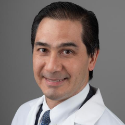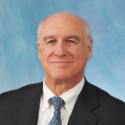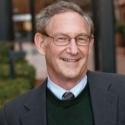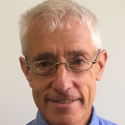Speaker Information
Check back for updates!
 Galit Alter, Ph.D.
Galit Alter, Ph.D.
Professor of Medicine at Harvard Medical School, Group Leader at the Ragon Institute of MGH, MIT and Harvard
Dr. Galit Alter is a Professor of Medicine at the Ragon Institute of MGH, MIT and Harvard and the Co-Director of the Harvard University Center for AIDS Research (CFAR). Her research is focused on the development of systems biology tools to define the correlates of immunity against infectious diseases that ravage the globe. Her work points to unexpected mechanisms of protection against HIV, malaria, SARS-CoV-2, and tuberculosis. It has led to the development of novel diagnostics to monitor chronic infections/diseases, and now promises to accelerate the development of novel classes of therapeutics able to deploy the activity of the innate immune system in a specific and controlled manner.
Disclosures: Dr. Alter has a financial relationship with Seromyx Systems, Inc.
 Dan Barouch, M.D., Ph.D.
Dan Barouch, M.D., Ph.D.
William Bosworth Castle Professor of Medicine and Professor of Immunology, Harvard Medical School
Director of the Center for Virology and Vaccine Research, Beth Israel Deaconess Medical Center
Dr. Dan Barouch received his Ph.D. in immunology from Oxford University and his M.D. from Harvard Medical School. He is currently the William Bosworth Castle Professor of Medicine and Professor of Immunology at Harvard Medical School, Director of the Center for Virology and Vaccine Research at Beth Israel Deaconess Medical Center, a member of the Ragon Institute of MGH, MIT, and Harvard, and part of the Bill & Melinda Gates Foundation Collaboration for AIDS Vaccine Discovery. His laboratory focuses on studying the immunology and virology of HIV-1 infection and developing novel vaccine and eradication strategies. His group has also applied their vaccine expertise to preclinical and clinical studies of other infectious diseases of global significance, including Zika virus, tuberculosis, and most recently SARS-CoV-2.
 Janice Chen, Ph.D.
Janice Chen, Ph.D.
Co-founder and CTO, Mammoth Biosciences
Janice Chen is the co-founder and CTO of Mammoth Biosciences, a biotechnology company harnessing a revolutionary gene-editing tool called CRISPR for rapid and affordable disease detection. Based in South San Francisco, Mammoth Biosciences is harnessing the diversity of nature to power the next generation of CRISPR products. Through its discovery of novel CRISPR systems, the company is enabling the full potential of its platform to read and write the code of life. Janice oversees the R&D functions for Mammoth's diagnostic programs and strategic plans for the company's overall portfolio of CRISPR products. She received her Ph.D. from the lab of Professor Jennifer Doudna at University of California, Berkeley. She investigated mechanisms of CRISPR proteins and developed technologies leading to multiple papers and patents, and co-invented the programmable CRISPR-based detection technology called DETECTR. Janice was selected as a 2019 Forbes 30 Under 30 in Healthcare, and delivered a TEDx talk on the potential for CRISPR to democratize diagnostics.
Disclosures: Dr. Chen has a financial relationship with Mammoth Biosciences.
 Myron Cohen, M.D.
Myron Cohen, M.D.
Yeargan-Bate Eminent Professor of Medicine, Microbiology and Immunology and Epidemiology
University of North Carolina (UNC) at Chapel Hill
Dr. Cohen is the Yeargan-Bate Eminent Professor of Medicine, Microbiology and Immunology and Epidemiology at the University of North Carolina (UNC) at Chapel Hill. He serves as the associate vice chancellor for global health at the university, and director for the Institute for Global Health & Infectious Diseases (IGHID). Dr. Cohen received the Distinguished Alumnus Award from Rush Medical College in 2000, the lifetime achievement award from the American Sexually Transmitted Diseases Association and the O. Max Gardner Award, the highest honor in the University of North Carolina System. In 2013, Dr. Cohen received the Smadel Award from the Infectious Disease Society in recognition of his work in public health and the Award for Science from the State of North Carolina, its highest civilian honor. He is a fellow of the American College of Physicians and the Infectious Disease Society of America, and a member of the National Academy of Medicine, the American Society of Clinical Investigation and the American Association of Physicians. Dr. Cohen serves as the co-principal investigator of the NIH HIV Prevention Trials Network (HPTN). Dr. Cohen has focused on the transmission and prevention of transmission of HIV. Dr. Cohen is the architect and Principal Investigator of the multinational HPTN 052 trial, which demonstrated that antiretroviral treatment of people with HIV infection, prevents the sexual transmission of the virus. Science Magazine recognized this work as the “Breakthrough of the Year” in 2011. Most recently, Dr. Cohen has played an active role in development of the COVID-19 prevention activities. He serves on the NIH ACTIV Committee, a public-private partnership to organize COVID-19 research. He is a member of the Executive Committee of newly formed NIAID COVID Prevention Network (CoVPN). In this capacity, Dr. Cohen his leading research on the use of monoclonal antibodies for the prevention and early treatment of COVID-19.
Disclosures: Dr. Cohen has a financial relationship with Merck.
 Larry Corey, M.D.
Larry Corey, M.D.
Past President and Director
Professor, Vaccine and Infectious Disease Division
Principal Investigator, HIV Vaccine Trials Network
Fred Hutchinson Cancer Research Center
Professor, Medicine and Laboratory Medicine
University of Washington
Dr. Corey is past president and director of the Fred Hutchinson Cancer Research Center and professor of its Vaccine and Infectious Disease Division. He is also a professor of Medicine and Laboratory Medicine at the University of Washington, was head of the UW Virology Division (1978-2010), and led the AIDS Clinical Trials Group (ACTG) (1987-1992). He has been PI of the HIV Vaccine Trials Network (HVTN) since its inception in 1999, and is an internationally renowned expert in virology, viral immunology and vaccine development.
As PI of the HVTN, Corey established an NIH-supported global network of scientists on five continents with over 70 clinical trial sites, 45 of which are in sub-Saharan Africa.
Corey received his BS and MD from the University of Michigan and his infectious diseases training at UW. He is a member of the National Academy of Medicine and the American Academy of Arts and Sciences, and the recipient of numerous awards. He is one of the most highly cited biomedical researchers in the last 20 years and is the author of over 800 scientific publications.
 Mark Denison, M.D.
Mark Denison, M.D.
Edward Claiborne Stahlman Professor of Pediatrics, Professor of Pathology, Microbiology and Immunology, and Director of the Division of Pediatric Infectious Diseases
Vanderbilt University Medical Center
Mark R. Denison, MD, is the Edward Claiborne Stahlman Professor of Pediatrics, Professor of Pathology, Microbiology & Immunology, and Director of the Division of Pediatric Infectious Diseases at Vanderbilt University Medical Center. The Denison Lab has been NIH funded for investigation of coronavirus replication, pathogenesis, evolution, and countermeasures for over 30 years. Coronaviruses (CoVs) are a family of RNA viruses causing respiratory infections and also zoonotic infections of global importance as potential pandemic pathogens and agents of bioterrorism, including SARS-CoV, MERS-CoV, and the current SARS-CoV-2 (COVID-19) pandemic. The Denison lab has focused on antiviral development since 2013 and initiated and led preclinical testing for anti CoV antivirals remdesivir and EIDD-2801. The lab also has identified multiple novel targets for antivirals and virus attenuation including the polymerase and novel proofreading exonuclease. Dr. Denison is a Fellow of AAAS, the American Academy of Microbiology, and the Association of American Physicians. He has served on national and international forums and panels regarding development of policies for biosecurity and biosafety, including current membership on the National Science Advisory Board for Biosecurity (NSABB).
Disclosures: Dr. Denison has a financial relationship with Gilead and Moderna.
.aspx?width=125&height=125) Anthony S. Fauci, M.D.
Anthony S. Fauci, M.D.
Director, National Institute of Allergy and Infectious Diseases (NIAID)
Chief, NIAID Laboratory of Immunoregulation
National Institutes of Health, Bethesda, Maryland
Anthony S. Fauci, M.D., is director of the National Institute of Allergy and Infectious Diseases (NIAID) at the U.S. National Institutes of Health, where he oversees an extensive research portfolio devoted to preventing, diagnosing, and treating infectious and immune-mediated diseases. Dr. Fauci has been a key advisor to six Presidents and their administrations on global AIDS issues, and on initiatives to bolster medical and public health preparedness against emerging infectious disease threats such as pandemic influenza. As an HIV/AIDS researcher he has been involved in the scientific effort since AIDS was recognized in 1981, conducting pivotal studies that underpin the current understanding of the disease and efforts to develop therapies and tools of prevention. Dr. Fauci was one of the principal architects of the President’s Emergency Plan for AIDS Relief (PEPFAR), which has helped save millions of lives throughout the developing world.
Dr. Fauci is the long-time chief of the NIAID Laboratory of Immunoregulation. He has made many contributions to basic and clinical research on the pathogenesis and treatment of immune-mediated and infectious diseases. He helped pioneer the field of human immunoregulation by making important basic scientific observations that underpin the current understanding of the regulation of the human immune response. In addition, Dr. Fauci is widely recognized for delineating the precise mechanisms whereby immunosuppressive agents modulate the human immune response. He developed effective therapies for formerly fatal inflammatory and immune-mediated diseases such as polyarteritis nodosa, granulomatosis with polyangiitis (formerly Wegener's granulomatosis), and lymphomatoid granulomatosis.
Dr. Fauci has made seminal contributions to the understanding of how HIV destroys the body's defenses leading to its susceptibility to deadly infections. Further, he has been instrumental in developing highly effective strategies for the therapy of patients living with HIV/AIDS, as well as for a vaccine to prevent HIV infection. He continues to devote much of his research time to identifying the nature of the immunopathogenic mechanisms of HIV infection and the scope of the body's immune responses to HIV.
Dr. Fauci is a member of the US National Academy of Sciences and the US National Academy of Medicine, and is the recipient of numerous prestigious awards for his scientific and global health accomplishments, including the National Medal of Science, the Robert Koch Medal, the Mary Woodard Lasker Award for Public Service, the Prince Mahidol Prize, The Gairdner Canada Award for Global Health, and the Presidential Medal of Freedom. He has been awarded 45 honorary doctoral degrees and is the author, coauthor, or editor of more than 1,300 scientific publications, including several major textbooks.
 Tom Gallagher, Ph.D.
Tom Gallagher, Ph.D.
Professor of Microbiology and Immunology
Loyola University Chicago
Tom Gallagher is a Professor of Microbiology and Immunology at Loyola University Chicago. He has been at Loyola for most of his career and has been highly active in teaching, service and research. His research is in virology, with specific focus on coronaviruses and the mechanisms by which they enter host cells. He is thankful for the opportunity to speak to the ASGCT about SARS-CoV-2 entry and antiviral targets to treat COVID19.
 Sarah Gilbert, Ph.D.
Sarah Gilbert, Ph.D.
Professor of Vaccinology, Nuffield Department of Medicine, University of Oxford; Co-founder of Vaccitech
Dr. Gilbert completed her undergraduate studies at the University of East Anglia and her doctoral degree at the University of Hull. Following four years as a research scientist at the biopharmaceutical company Delta Biotechnology she joined the Nuffield Department of Medicine (NDM) at Oxford University in 1994 and became part of the Jenner Institute (within NDM) when it was founded in 2005. Her chief research interest is the development of viral-vectored vaccines that work by inducing strong and protective T and B cell responses. She leads the Jenner Institute programme in influenza vaccine development and also works on vaccines for many different emerging pathogens, including Nipah, MERS, Lassa, Crimean-Congo haemorrhagic fever, and SARS-CoV-2. Working with colleagues in the Jenner Institute research labs, the Clinical Biomanufacturing Facility and Centre for Clinical Vaccinology and Tropical Medicine, all situated on the Old Road Campus in Oxford, she is able to take novel vaccines from design to clinical development, with a particular interest in the rapid transfer of vaccines into manufacturing and first in human trials. She is the Oxford Project Leader for ChAdOx1 nCoV-19, a promising vaccine against the novel coronavirus, SARS-CoV-2.
Disclosures: Dr. Gilbert has a financial relationship with Vaccitech.
 Michael Joyner, M.D.
Michael Joyner, M.D.
Anesthesiologist
Mayo Clinic
The laboratory of Michael J. Joyner, M.D., is interested in how humans respond to various forms of physical and mental stress during activities such as exercise, hypoxia, standing up, and blood loss.
Dr. Joyner and his team study how the nervous system regulates blood pressure, heart rate and metabolism in response to these forms of stress. They are also interested in how blood flow to muscle and skin responds to these stressors. These responses are studied in young healthy subjects, healthy older subjects, and people with conditions such as heart failure.
Finally, Dr. Joyner is personally interested in the role of integrative approaches in science as a powerful tool to integrate and critique data from reductionist approaches.
 Florian Krammer, Ph.D.
Florian Krammer, Ph.D.
Professor of Vaccinology
Icahn School of Medicine at Mount Sinai
Florian Krammer, PhD, graduated from the University of Natural Resources and Life Sciences, Vienna (Austria) in 2010. He received his postdoctoral training in the laboratory of Dr. Peter Palese at the Icahn School of Medicine at Mount Sinai, New York working on hemagglutinin stalk-based immunity and universal influenza virus vaccines. In 2014 he became an independent principal investigator and is currently Mount Sinai Professor of Vaccinology at the Icahn School of Medicine at Mount Sinai. Dr. Krammer's work focuses on understanding the mechanisms of interactions between antibodies and viral surface glycoproteins and on translating this work into novel, broadly protective vaccines and therapeutics. The main target is influenza virus but he is also working on coronaviruses, Zika virus, hantaviruses, filoviruses and arenaviruses.
Disclosures: Dr. Krammer has a financial relationship with Mount Sinai Health System.
 Paul McCray, M.D.
Paul McCray, M.D.
Professor of Pediatrics, Microbiology and Immunology, and Internal Medicine
University of Iowa
Dr. McCray is the Executive Vice Chair in the Department of Pediatrics, Associate Director of the Center for Gene Therapy of Cystic Fibrosis, and holds the Roy J. Carver Chair in Pulmonary Research at the University of Iowa. He is a member of the American Society for Clinical Investigation, the American Pediatric Society, the Association of American Physicians, the American Association for the Advancement of Science, and the American Academy of Microbiology. As a pediatric pulmonologist, Dr. McCray has long-standing interests in cystic fibrosis, host-pathogen interactions, airway epithelial biology, pulmonary innate immune responses, and the applications of gene transfer for lung diseases. One focus of his laboratory program has been to better understand the pathogenesis of cystic fibrosis as a path to new treatments. Another focus is the study of virulent coronavirus infections (SARS, MERS, COVID-19), their pathogenesis, the development of small animal models of disease, and paths to therapies. Dr. McCray’s work is supported by NIH and the Cystic Fibrosis Foundation.
Disclosures: Dr. McCray has a financial relationship with Spirovant Scienes, Inc., and Oryn Therapeutics.
 Jason McLellan, Ph.D.
Jason McLellan, Ph.D.
Associate Professor in the Department of Molecular Biosciences,
University of Texas at Austin
Jason earned a BS in chemistry with an emphasis in biochemistry from Wayne State University in Detroit, Michigan. Afterward, he obtained his PhD from the Johns Hopkins University School of Medicine in Baltimore, Maryland in the laboratory of Dr. Daniel Leahy. He then carried out postdoctoral research at the National Institutes of Health's Vaccine Research Center in the laboratory of Dr. Peter Kwong and in collaboration with Dr. Barney Graham. In the Fall of 2013, he joined the faculty at the Geisel School of Medicine at Dartmouth in the Department of Biochemistry, and in January 2018 he moved his laboratory to the University of Texas at Austin and became a member of the Department of Molecular Biosciences. His lab is interested in elucidating the molecular mechanisms of host–pathogen interactions and leveraging the resulting information for the development of vaccines and immunotherapies.
Disclosures: Dr. McLellan has financial relationships with patent applications for prefusion-stabilized CoV spikes as vaccine antigens and for SARS-CoV-2 camelid nanobodies.
 Stanley Perlman, M.D., Ph.D.
Stanley Perlman, M.D., Ph.D.
Professor of Microbiology and Immunology, Professor of Pediatrics, Mark Stinski Chair in Virology, University of Iowa
My expertise is in the relationship between virus replication in the infected host and the immune response to the virus. I am especially interested in how the host response to the virus causes immunopathological disease. I have studied coronaviruses, with an emphasis on pathogenesis, for over 35 years, with over 240 publications. For most of my career, I have studied virus-induced demyelination, using mice infected with mouse hepatitis virus (MHV). I also have a special interest in infections caused by SARS-CoV, SARS-CoV-2 and MERS-CoV. My lab helped develop novel transgenic mice that express human ACE2, the receptor for SARS-CoV and others that express hDPP4, the receptor for MERS-CoV. We developed “hDPP4-knock-in” mice and selected a MERS-CoV that causes severe disease in these mice. We are now developing mouse models for COVID-19. My laboratory has extensive experience analyzing dendritic cell function and T cell and antibody responses in SARS-CoV-infected mice. My laboratory has experience with analyzing expression of small lipid mediators in the lungs of mice infected with SARS-CoV and with the enzymes involved in their expression. We have also modified reverse genetics systems for SARS-CoV, SARS-CoV-2, MERS-CoV , SARS-CoV-2 and MHV that are useful for easily developing recombinant viruses.
 Erica Ollmann Saphire, Ph.D.
Erica Ollmann Saphire, Ph.D.
Professor Adjunct, Department of Immunology and Microbiology, Scripps Research
Erica Ollmann Saphire, PhD, is a professor at the La Jolla Institute for Immunology. Her research explains, at the molecular level, how and why viruses like SARS-CoV-2, Ebola, and Lassa are pathogenic and provides the roadmap for medical defense. Her team has solved the structures of the Ebola, Sudan, Marburg, Bundibugyo, and Lassa virus glycoproteins. Her team has also explained how they remodel these structures as they drive themselves into cells, how their proteins suppress immune function, and where human antibodies can defeat these viruses. A recent discovery revealed why neutralizing antibodies had been so difficult to elicit against Lassa virus, and provided not only the templates for the needed vaccine, but the molecule itself: a Lassa surface glycoprotein engineered to remain in the right conformation to inspire the needed antibody response. This molecule is the basis for international vaccine efforts against Lassa. Dr. Saphire was also the galvanizing force behind the Coronavirus Immunotherapeutic Consortium (CoVIC) and the Viral Immunotherapeutic Consortium (VIC) and is the director of both organizations. These consortia, supported by the Therapeutics Accelerator of the Bill & Melinda Gates Foundation and NIAID, aim to evaluate and mobilize antibody treatments against SARS-CoV-2 and other threats to human health. Dr. Saphire’s work has been recognized at the White House with the Presidential Early Career Award in Science and Engineering, with young investigator awards from the International Congress of Antiviral Research, the American Society for Microbiology, and the MRC Centre for Virus Research in the United Kingdom. She has been awarded a Fulbright Global Scholar fellowship and a Mercator Fellowship from Deutsche Forschungsgemeinschaft for research in Marburg, Martinsried and Cambridge to develop international collaborations using cryoelectron microscopy to further global health.
 Jordan Tappero, M.D., M.P.H
Jordan Tappero, M.D., M.P.H
Deputy Director, Global Health, Neglected Tropical Diseases
Bill & Melinda Gates Foundation
A physician epidemiologist by training, Dr. Tappero joined the foundation in January 2018 after completing a 25-year career with CDC. At present, he is focused on the eradication of Guinea worm, and the global elimination of lymphatic filariasis, human African trypanosomiasis, and visceral leishmaniasis in Asia. He has broad public health skills including: the conduct of randomized clinical trials; the implementation of HIV/AIDS, tuberculosis, and NTD prevention, care and treatment programs; the introduction of new childhood vaccines; developing surveillance systems; and serving as CDC Incident Manager for complex humanitarian emergencies (Haiti post-earthquake cholera and West African Ebola epidemics). He has global health experience across four continents including 14 years residing overseas as a CDC Country Director in Botswana, Thailand, Uganda and Haiti. In 2017, he retired from the U.S. Public Health Service at the rank of Rear Admiral and Assistant Surgeon General. In February and March of 2020, he provided direct foundation support to WHO’s Health Emergencies Programme in its early response to COVID-19 while based in Geneva. He holds three American Board Certifications (Dermatology, Internal Medicine and Preventive Medicine) and has co-authored over 265 peer-reviewed publications.
 Linfa Wang, Ph.D.
Linfa Wang, Ph.D.
Director of the Programme in Emerging Infectious Diseases
Duke-NUS Medical School, Singapore
Dr. Wang is an international leader in the field of emerging zoonotic viruses and virus-host interaction. He was a member of the WHO SARS Scientific Research Advisory Committee, and played a key role in identification of bats as the natural host of SARS-like viruses. He currently serves on multiple WHO and OIE committees and working groups on COVID-19. He has more than 400 publications, including papers in Nature, Science, and The Lancet, among others. He is the Editor-in-Chief for the open access Virology Journal. In 2010, Prof. Wang was elected to the Australian Academy of Technological Sciences and Engineering.
 Susan Weiss, Ph.D.
Susan Weiss, Ph.D.
Professor and Vice Chair, Department of Microbiology
Co-Director, Penn Center for Research on Coronaviruses and Other Emerging Pathogens
Perelman School of Medicine, University of Pennsylvania
Susan obtained her Ph.D. in Microbiology from Harvard University working on paramyxoviruses and did postdoctoral training in retroviruses at University of California, San Francisco. She is currently Professor and Vice Chair, Department of Microbiology and Co-director of the Penn Center for Research on Coronaviruses and Other Emerging Pathogens at the Perelman School of Medicine at the University of Pennsylvania. She has worked on many aspects of coronavirus replication and pathogenesis over the last forty years, making contributions to understanding the basic biology as well as organ tropism and virulence. She has worked with murine coronavirus (MHV), MERS-CoV and most recently SARS-CoV-2. Her work for the last ten years has focused on coronavirus interaction with the host innate immune response and viral innate antagonists of double-stranded RNA induced antiviral pathways. Her other research interests include activation and antagonism of the antiviral oligoadenylate-ribonuclease L (OAS-RNase L) pathway, flavivirus- primarily Zika- virus-host interactions and pathogenic effects of host endogenous dsRNA.